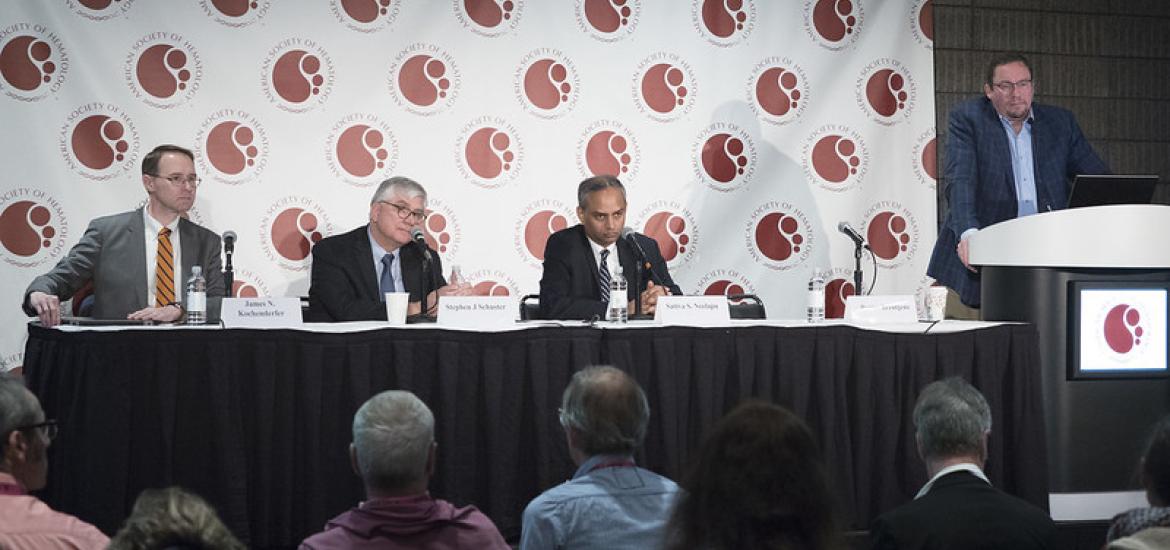
ASH 2025 preview – multiple myeloma focus
Arcellx and AstraZeneca take centre stage.
Arcellx and AstraZeneca take centre stage.

With the American Society of Hematology meeting two weeks away investor attention has turned to the key studies due to be presented. Among these multiple myeloma as ever has a high profile, and here a key update is expected on Arcellx’s filing plans for anito-cel, as is the first indication of what AstraZeneca got for its $1bn acquisition of Gracell two years ago.
The headline findings from studies of these and other projects were unveiled when ASH abstract texts went live this month, and the subjects of all presentations apart from a handful of late-breakers are now known. However, the meeting itself will provide key additional data, which will be especially relevant in the case of abstracts with fairly old cutoff dates.
One of these concerns the registrational Immagine-1 study of Arcellx’s Gilead-partnered anti-BCMA Car-T therapy anito-cel, whose abstract cites data cutoff at 1 May. The full presentation is expected to provide a significantly more up to date picture of a trial that now includes over 100 patients with relapsed/refractory multiple myeloma.
More than the data, which are widely expected to impress, investors will be awaiting guidance on when Arcellx expects to file anito-cel for approval, and whether this is the final dataset that will go to regulators. Anito-cel is a key rival to Legend/Johnson & Johnson’s approved Carvykti, and an ASH abstract concerning a retrospective comparison of the two was apparently withdrawn.
Bispecific
Meanwhile, Astra bought Gracell chiefly for that company’s bispecific anti-CD19 x BCMA Car-T asset GC012F, which it now codes AZD0120.
So far this has yielded several cuts of a Chinese study conducted by Gracell in first-line multiple myeloma after two cycles of induction therapy, but ASH will see an Astra-sponsored trial in the relapsed/refractory setting. One focus will be this therapy’s potential, claimed by Gracell, to be manufactured in two days rather than weeks.
Selected ASH 2025 oral presentations on multiple myeloma
| Project | Mechanism | Company | Trial | Setting | Abstract | Summary |
|---|---|---|---|---|---|---|
| Lynozyfic | BCMA T-cell engager | Regeneron | Linker-MM4 | First line | 697 | 28 Apr 2025 cutoff: ORR 79% (n=43) |
| Eque-cel | BCMA Car-T | IASO Bio | Fumanba-2 | First-line maintenance | 254 | 13 May 2025 cutoff: 94% sCR rate (n=16) |
| Anito-cel | BCMA Car-T | Arcellx/ Gilead | Immagine-1 | Relapsed/refractory | 256 | 1 May 2025 cutoff: 97% ORR (n=117) |
| AZD0120/ GC012F | CD19 x BCMA Car-T (fast) | AstraZeneca (ex Gracell) | Durga-1 | Relapsed/refractory | 258 | 18 Jul 2025 cutoff: 100% ORR (n=15) |
| IBI3003 | GPRC5D x BCMA trispecific T-cell engager | Innovent | NCT06083207 | Relapsed/refractory | 702 | 28 Jul 2025 cutoff: 79% ORR (n=24) |
| LBL-034 | GPRC5D T-cell engager | Nanjing Leads | NCT06049290 | Relapsed/refractory | 91 | 15 Jul 2025 cutoff: 71% ORR (n=55) |
| Cevostamab | FcRH5 T-cell engager | Roche | Camma-3 | Relapsed/refractory | 700 | 24 Feb 2025 cutoff: 39% ORR (n=52) |
| KTX-1001 | MMSET inhibitor | K36 Therapeutics | NCT05651932 | Relapsed/refractory | 250 | 13 Jun 2025 cutoff: 5% ORR (n=40) |
Source: ASH.
Also in focus are Regeneron’s Lynozyfic, approved this year for fifth-line multiple myeloma, and Innovent’s IBI3003, a trispecific T-cell engager against BCMA and GPRC5D.
On the face of it the 79% response rate in first-line multiple myeloma revealed in Lynozyfic’s ASH abstract looks unimpressive, given the 70% cited on the drug’s US label in the fifth-line setting. However, the ASH dataset comprises several doses, and more information is awaited about patients’ characteristics and the like.
As for IBI3003, this is a molecule Innnovent has highlighted as one to watch after licensing its lead cytokine project to Takeda for $1.2bn. ASH appears to be the first time human data will be presented at a scientific meeting for IBI3003, something that also goes for Nanjing Leads’ LBL-034 and K36 Therapeutics’ KTX-1001.
And interest in Roche’s FcRH5-targeting T-cell engager cevostamab continues given this mechanism’s relatively untested nature, and the company’s pressing ahead into phase 3 on somewhat limited data. The ASH abstract results are well short of what Roche claimed in the earlier Camma-1 trial, but again they include various doses in addition to those deemed most efficacious.
For K36, however, there seems to be little solace. This private biotech appears to be the only company working on MMSET inhibition, but a 5% ORR among 40 relapsed/refractory multiple myeloma patients hardly seems competitive.
ASH 2025 takes place in Orlando, Florida on 6-9 December.
3164













